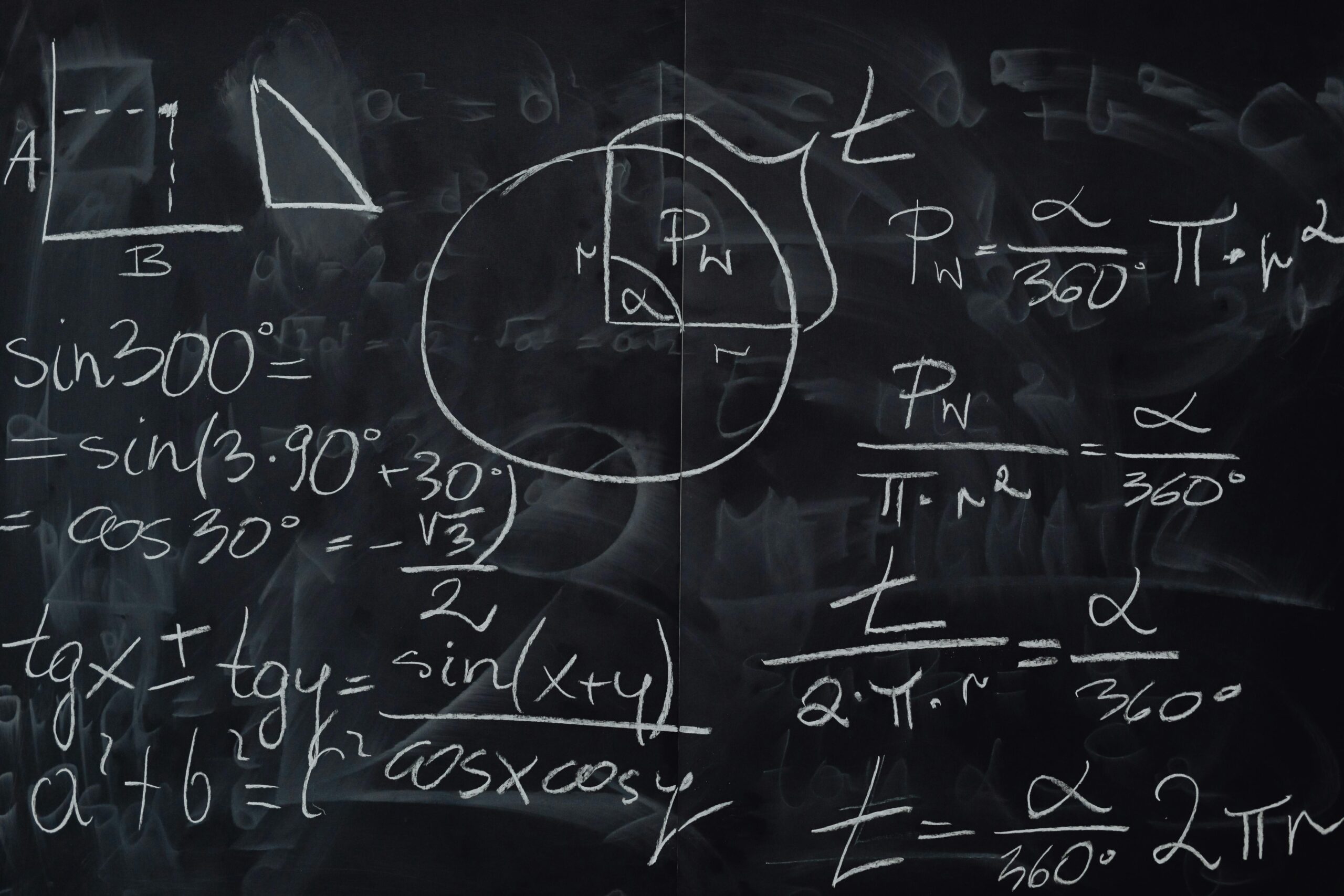Why This Longstanding Math Contest Still Matters for Ontario Teens
If your child is curious about math or enjoys a good challenge, you may have heard them mention the Euclid Math Contest. It sounds a bit serious, maybe even intimidating — but this contest has a long, fascinating story behind it, and it’s actually pretty exciting once you dive in.
So, let’s take a light-hearted journey through the history of the Euclid Math Contest, and explore why it’s still going strong — and why your child might want to give it a go.
🧑🏫 Where It All Began: The University of Waterloo
The Euclid Math Contest was first introduced by the University of Waterloo’s Centre for Education in Mathematics and Computing (CEMC) — a department known for supporting young problem-solvers across Canada. The contest began several decades ago as a way to identify and encourage mathematical talent in high school students.
It was named after the ancient Greek mathematician Euclid, who is often called the “Father of Geometry.” He wrote a famous book called Elements, which became one of the most influential works in the history of math.
By choosing Euclid’s name, the creators of the contest wanted to celebrate clear thinking, logical problem-solving, and the love of math for its own sake.
Even today, the University of Waterloo uses this contest to help discover talented students — not just locally in Ontario, but from all across Canada and even internationally.
📅 A Contest That’s Grown With the Times
Back in the early days, students would take the Euclid Contest using pencil and paper in quiet classrooms, often without knowing much about it in advance. Teachers would sign up their schools, and curious students would give it a shot — sometimes just to see what it was all about.
Fast forward to today, and the contest is more popular than ever. Each year, thousands of students from Ontario and beyond register to take the test in April. Some prepare for months, using old contest papers, while others jump in just for fun.
Even though the format has stayed similar — 10 questions in 2.5 hours, with full solutions required — the world around it has changed. Math clubs, online forums, and prep groups now help students connect and grow together, turning the contest into more than just an exam — it’s a shared experience.
So while the contest may seem “old-school,” it has kept up with modern students and continues to inspire young thinkers every year.
✨ What Makes It Different From Other Contests?
If your child has taken part in other math competitions, like Kangaroo Math or school-run math challenges, the Euclid Contest may feel a little different. That’s because Euclid isn’t just about picking the right multiple-choice answer — it’s about showing your work and communicating your thinking clearly.
Students are asked to solve problems that often combine geometry, algebra, and logic — and then explain how they arrived at their answer. This part is crucial because it mirrors the way real mathematicians work: step-by-step reasoning, not just final answers.
This kind of challenge helps students grow academically, but it also builds skills that transfer well into other subjects — especially science, engineering, and even writing.
In fact, the Euclid Contest teaches students to think like problem-solvers, not just test-takers — and that’s a major reason why it has lasted so long.
🌱 Why Ontario Parents Should Take Notice
As a parent in Ontario, you probably want to support your child’s interests and help them build confidence — especially in subjects like math, which can feel intimidating at times.
The beauty of the Euclid Contest is that it encourages challenge in a positive way. Your child doesn’t need to be a math genius to participate. In fact, students of all skill levels benefit just from trying, learning from their mistakes, and pushing their thinking further.
Plus, since the contest is run by the University of Waterloo, which is one of Canada’s top universities, it also helps your child become more familiar with post-secondary options — especially if they’re interested in science, technology, engineering, or math.
You don’t have to be a math expert to cheer them on. Just asking, “Hey, what’s that Euclid thing about?” can spark an amazing conversation and give your teen a little nudge of encouragement.
🎓 A Lasting Legacy of Learning
In a world full of distractions and quick results, the Euclid Math Contest offers something different — a reminder that deep thinking still matters, and that puzzles can be fun even when they’re tough.
By encouraging students to slow down, think carefully, and explain their ideas, the Euclid Contest builds more than just math skills — it nurtures curiosity, focus, and academic maturity.
So if your child is thinking about participating, give them a boost. Let them know that they’re stepping into something with history, purpose, and real meaning.
The Euclid Math Contest isn’t just a test. It’s a tradition. And for many Ontario students, it’s the beginning of something truly exciting.

✍️ Who Can Take It — And Why They Should
Everything Ontario Parents Need to Know About the Euclid Math Contest
If you’ve ever heard your teen mention the Euclid Math Contest, your first thought might’ve been, “Isn’t that for math whizzes?” But the truth is, this contest is more inclusive than you might expect — and way more beneficial than it first seems.
Let’s take a look at who can sign up for the contest, why it’s worth doing (even for fun!), and how your child might benefit from giving it a shot.
👩🏫 Who Can Actually Take the Euclid Math Contest?
Here’s the good news — the Euclid Contest is open to all high school students, not just top math students or seniors. While it’s mainly designed for Grade 12 students, anyone in high school can register, including those in Grades 9 through 11 who want to challenge themselves early.
Even students outside of Ontario (and Canada!) can take the contest, but for your child here in Ontario, it’s a great way to explore math beyond the usual school routine.
In most cases, the contest is offered through schools, so your child’s math teacher or guidance counselor can help them register. But if their school doesn’t offer it, students can still sign up independently through the University of Waterloo’s website.
You don’t need to worry about eligibility rules — as long as your child is in high school and curious about math, they’re welcome to join!
💡 Why Should Students Give It a Try?
Now, let’s talk about why your child should take the Euclid Math Contest — even if they’re not planning to be a mathematician.
The number one reason? It encourages growth, not just grades. By working through the contest’s problem-solving questions, your teen gets the chance to develop logic, patience, and creative thinking — all skills that help in everyday schoolwork and future careers.
Plus, it’s a low-pressure opportunity to explore something outside the regular curriculum. There’s no pass or fail. No scary final marks. Just a fun, challenging experience that builds confidence — especially for students who enjoy thinking outside the box.
Even if your child gets stuck on a tough question, they’ll learn something from the process. And that kind of learning sticks far longer than memorizing formulas.
🎓 It’s Great Practice for University (and Life)
Here’s something Ontario parents should know: the Euclid Contest can make a real difference when it comes to post-secondary opportunities.
Many university programs, especially in math, engineering, or science, notice students who participate in contests like Euclid. It shows initiative, problem-solving ability, and a love of learning — all things that admissions officers value.
For programs at the University of Waterloo, in particular, the Euclid score can even be used for scholarships or to support admission decisions.
But beyond university applications, contests like this help students learn how to tackle complex problems, manage time under pressure, and explain their thinking — which are skills they’ll need in nearly every future career.
So, even if your child doesn’t plan to major in math, participating in Euclid can be a stepping stone to becoming a more confident student.
🚀 It’s Not Just for “Math Kids”
You might be thinking, “Sure, that all sounds great… but my child doesn’t think they’re a math person.” That’s okay — and exactly why this contest matters.
The Euclid Math Contest is not about speed or tricks. It’s about taking your time, using logic, and exploring different paths to solve a problem. That means it rewards effort, curiosity, and clarity more than just memorization or natural ability.
In fact, many students surprise themselves once they try it. They realize they’re better at reasoning than they thought — and that math can actually be fun when it’s presented like a puzzle.
As a parent, you don’t have to push. You can just plant the seed and offer encouragement. Something as simple as, “I think you’d enjoy trying that contest” can be all it takes to spark interest.

🔍 Euclid vs. Other Math Contests
Helping Ontario Parents Understand How It Stands Out — and Why That Matters
If your teen loves math, chances are you’ve heard about a few different math contests out there. There’s Kangaroo Math, Gauss, Pascal, and of course, the Euclid Math Contest — the one that sounds the most serious, right?
As a parent, it’s easy to feel a little overwhelmed by all these names. You might be wondering: What’s the difference? Which one is best for my child? And more importantly, Does any of this really matter?
Good news — you don’t need to be a math expert to figure this out. We’ve broken down how the Euclid Contest compares to other popular math competitions to help you support your teen with confidence.
🐘 The Euclid Contest Is Bigger and Deeper
Let’s start with the basics. Most math contests in elementary or early high school — like Kangaroo, Gauss, or Pascal — focus on multiple-choice questions. Students read, pick the best option, and move on. They’re fun, quick, and great for building early problem-solving skills.
But the Euclid Math Contest is a different experience. It’s longer (2.5 hours), has open-ended problems, and asks students to show their full solutions, not just guess the answer. It encourages students to explain how they think — step by step.
That means Euclid is less about guessing the right answer and more about understanding, reasoning, and expressing logic clearly. So while contests like Kangaroo offer a fun intro, Euclid pushes students to stretch their thinking and deepen their problem-solving skills.
Think of it like moving from casual swimming lessons to your first real swim meet — exciting, challenging, and a little more intense.
🧩 It’s More About Process Than Perfection
One of the things that really sets the Euclid Contest apart is its focus on the process, not just the result.
In other math contests, a correct answer might get full marks, and a wrong one gets zero. But Euclid gives partial marks for logical thinking, even if the final answer isn’t quite right. That means students are rewarded for trying — and for explaining what they were thinking.
This is great for students who may not be lightning-fast but are thoughtful, persistent, and creative. It encourages them to slow down, plan their work, and try different strategies.
And for you as a parent, it means your child doesn’t have to “win” to benefit. Just attempting the contest builds valuable academic muscles they’ll use throughout high school and beyond.
🎓 Universities Value Euclid More Than Most Contests
Many math contests are fun and motivating, but some have more real-world value than others when it comes to university applications.
The Euclid Math Contest is run by the University of Waterloo, one of Canada’s top schools for STEM programs. That means they take this contest very seriously — and even use it to assess applicants to programs like Engineering and Computer Science.
Not only that, but strong Euclid scores can lead to entrance scholarships, recognition, and even early admission offers. Most other contests aren’t used in this way, which makes Euclid a uniquely powerful tool for students interested in post-secondary studies in science, tech, or math.
Even if your child doesn’t score highly, simply participating in Euclid shows ambition, discipline, and a willingness to take on academic challenges — all of which look great on applications.
🧠 Every Contest Has a Purpose — But Euclid Builds Endurance
It’s helpful to think of math contests like a ladder — each one helps students climb toward a stronger math mindset. The early contests like Kangaroo or Gauss are about curiosity and quick thinking. They’re excellent for building confidence and seeing math as fun.
Later contests like Fermat, Pascal, or Cayley start to introduce deeper problems and longer thinking time — a solid middle step.
But Euclid is the top of that ladder. It’s designed for students who want a real academic challenge and who enjoy applying math in complex ways. It’s also great preparation for university entrance exams, technical interviews, or future problem-solving tasks in STEM fields.
Think of it this way — if Gauss is like a short story, Euclid is like a novel. It asks more of you, but it also gives more in return.
🌟 So Which Contest Is Best for Your Child?
Honestly? All of them can be great, depending on your child’s age, confidence, and curiosity level.
If your child is younger or just starting to enjoy math, Kangaroo or Gauss might be the perfect fit. If they’re a little older and enjoy challenges, Euclid could be the next exciting step — even if they don’t “win.”
Encouraging your child to try different contests over time helps them grow, explore, and understand their strengths. The key is not to chase prizes, but to build learning experiences that boost confidence and resilience.

🎉 What a ‘Fun Challenge’ Actually Looks Like
Why the Euclid Math Contest Is Tough — But Totally Worth It
Let’s be honest for a second — when your teen says, “I’m going to take a math contest for fun,” you might raise an eyebrow. It doesn’t exactly sound like their idea of a Friday night.
But here’s the twist: the Euclid Math Contest is one of those rare challenges that’s tough, sure, but also genuinely satisfying to attempt. Think of it like a mental escape room — a place where problem-solving becomes exciting, and effort feels rewarding.
So, if you’re curious about what your child might experience when they take the Euclid Contest, let’s walk through what makes this “fun challenge” so unique — and, yes, totally do-able.
🧠 Big Thinking, Small Pressure
First things first — Euclid isn’t your typical classroom test. There are no grades. No pass or fail. No teachers breathing down necks. Instead, your child gets 2.5 hours to solve 10 thoughtful problems — many of which require real creativity.
Some questions will feel familiar — like algebra or geometry — but others will make students think in new directions. They may need to combine different concepts, draw diagrams, or even guess and check their way through a tricky situation.
It’s like math with a twist. Each question is more like a puzzle than an exam. And since there’s no penalty for wrong answers, students can feel free to take risks and explore different strategies.
As a parent, you can think of it like a brainy workout that doesn’t come with a report card — just the satisfaction of trying something difficult and growing from it.
✏️ A Sample Question (And Why It’s Kind of Cool)
Let’s break down a typical Euclid-style question — and don’t worry, you don’t need to solve it!
“A rectangular garden has a length 4 metres greater than its width. Its area is 77 square metres. What are the dimensions?”
At first glance, this seems simple — just a problem from Grade 10 math. But it actually pushes students to think algebraically, form equations, and use logic to solve it.
The fun part? There’s no one way to solve it. Some students might draw a diagram. Others might plug in numbers or factor an equation. Everyone takes a slightly different path, which makes it feel less like a test and more like a math adventure.
Even if your child doesn’t get the final answer, they’re rewarded for showing how they thought about the problem — and that’s where real learning happens.
🚀 How Students Actually Feel During the Contest
Let’s talk vibes. The contest is usually held in a quiet classroom, but don’t assume it’s a boring experience. Many students describe it as surprisingly enjoyable, like playing a long game that really gets your brain going.
Some get stuck and then suddenly figure something out — and that “aha!” moment feels better than getting full marks in class.
Others work steadily, solving what they can and skipping what they can’t — and that’s okay too. There’s no pressure to finish everything. Students are encouraged to do their best, stay calm, and keep thinking.
Afterward, there’s a mix of reactions. Some students want to discuss their answers. Others rush to look up solutions online. A few even decide they want to try again next year.
As a parent, you’ll probably hear things like “That was hard… but actually fun.” That’s your sign it worked.
🌈 Learning That Feels Like Discovery
One of the best parts about Euclid? It gives students permission to fail forward — to make mistakes, learn from them, and grow.
Unlike school math, where pressure often revolves around getting things “right,” Euclid creates space for curiosity, experimentation, and resilience. That’s what makes it feel like a challenge worth taking.
Your child might not get a perfect score. In fact, most don’t. But what they gain is far more valuable: the ability to keep trying, stay focused, and trust their own thinking.
For some students, this becomes the moment they realize that math isn’t about memorizing steps — it’s about solving mysteries.
👏 What You Can Do to Cheer Them On
You don’t need to be a math genius to support your child through this contest. Your job is way more important — you’re their coach, their cheerleader, and their calm voice when they hit a wall.
Ask them how they’re preparing. Offer snacks during practice. Celebrate the attempt more than the score.
Remind them that trying hard things is how we grow — and that taking part in Euclid, win or lose, is already something to be proud of.
🧩 The “Fun Challenge” Is Real
Yes, the Euclid Math Contest is tough. But it’s also rewarding, thoughtful, and even a little bit addictive once students get into it.
It’s the kind of challenge that builds not just math skills, but confidence, patience, and perseverance — all the stuff that matters long after the contest ends.
So when your child signs up, smile and say, “That sounds like fun.” Because once they try it, they just might agree.



